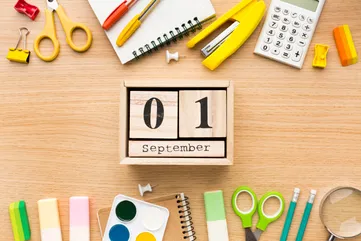Keystone Habits
Keystone habits are single behaviors that naturally trigger widespread positive changes, like making your bed leading to an organized room then organized life.
Why keystone habits work
Keystone habits create identity shifts and build self-efficacy that extends beyond the specific behavior.
When teens successfully maintain a keystone habit, they see themselves differently. "I'm someone who exercises" becomes "I'm someone who takes care of myself." This identity shift drives other positive changes. Keystone habits also often improve executive function, energy, or time management, enabling other improvements.
You're not alone
If you've tried changing everything at once and failed, or wonder why some teens transform completely after one change, you're seeing keystone habits at work. Most people don't realize certain habits have outsized influence. Finding your teen's keystone habit can shift everything.
What it looks like day to day
Student
Your teen starts exercising regularly, then suddenly their grades improve, sleep regulates, and mood stabilizes without targeting those areas.
Parent
You notice when your teen's sleep schedule is consistent, everything else falls into place, but when sleep fails, everything crumbles.
Tiny steps to try
Identify and establish keystone habits strategically.
- 1
Track patterns
Notice what falls apart together. These connections reveal potential keystone habits.
- 2
Start with sleep
For most teens, consistent sleep schedule is the ultimate keystone habit.
- 3
Morning routine
A solid morning routine often cascades into productive days.
- 4
One at a time
Focus entirely on establishing one keystone habit before adding others.
- 5
Watch for ripples
Document unexpected improvements to reinforce the keystone habit's value.
Why keystone habits matter most
Some habits create chain reactions of improvement without conscious effort to change other behaviors.
Keystone habit effects:
• Exercise improves sleep and eating naturally
• Making bed increases productivity all day
• Regular sleep schedule improves everything
• Planning tomorrow reduces morning chaos
• Reading before bed decreases screen time
• Daily walk improves mood and focus
Identifying and establishing keystone habits provides maximum impact with minimum effort.
Ready to help your teen thrive?
Get personalized 1-on-1 coaching to build better habits and boost grades. Join 10,000+ families who trust Coachbit.
Frequently Asked Questions
How do I identify my teen's keystone habit?
Look for habits that when present, other things go well, and when absent, multiple areas suffer. Common teen keystone habits include sleep, exercise, morning routines, or planning systems. Experiment with different ones for 2-3 weeks each.
What if the obvious keystone habit is the hardest to change?
Start with an easier potential keystone habit to build momentum. Sometimes a smaller keystone habit makes the bigger one possible. For example, a short morning walk might eventually enable better sleep patterns.
Related Terms
Goal Setting
Goal setting is the process of identifying specific, achievable objectives and creating actionable plans to reach them within defined timeframes.
Habit Loop
The habit loop is a three-part brain cycle of cue, routine, and reward that drives automatic behaviors and can be hacked to build positive habits.
Habit Stacking
Habit stacking is linking a new habit to an existing routine, using established behaviors as triggers for new ones to build consistent patterns.
Self-Efficacy
Self-efficacy is the belief in your ability to succeed at specific tasks or challenges, directly influencing motivation and persistence.
Tiny Habits
Tiny habits are behaviors so small they require minimal motivation, designed to build consistency before expanding into larger routines.
Related Articles

Finding Order in the Chaos – Setting up Calendars for Kids
Creating a calendar and daily schedule for kids can be beneficial to manage school, homework, extracurriculars and hobbies. Color-coding and time-blocking are helpful tools for kids with ADHD.
Read article
Deep Play Helps Teenagers Learn
Purposeful or 'Deep Play' is more than entertainment. Neuroscience shows that play is pivotal to learning, creativity and problem-solving in teenagers.
Read article
